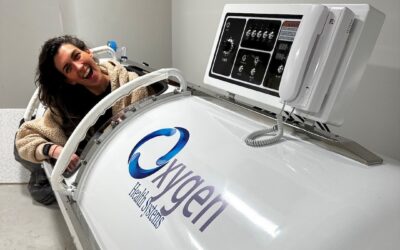Women, in particular are very aware of the role that hormones play in our everyday health. Beginning with puberty and continuing through adulthood, our monthly menstrual cycle and fluctuating hormones affect how we feel on a daily basis. Anywhere from the mid 40’s to the mid 50’s, women begin to encounter a profound change in these reproductive hormones, in the life stage of menopause. Just the word menopause can spark dread and feelings of anxiety, as they approach and go through the “big change”. Our bodies begin to behave differently and physiological changes can affect our physical, mental and emotional health. Several undesired symptoms can begin to surface even a decade before menopause, known as perimenopause. Luckily, with the proper education and medical intervention, one can maintain a high quality of life and maintain youthful vigor even during this major transition.
Perimenopause ends and menopause officially begins when a woman stops menstruating for 12 consecutive months. During perimenopause, progesterone and estrogen levels begin to diminish. Prior to perimenopause, production of estrogen and progesterone are increased every month as the uterus prepares itself for a fertilized egg. When a woman enters perimenopause, eggs are not being released as frequently as they used to – and as a result, estrogen and progesterone production is decreased. At the onset of menopause there is a total decline of all major hormones and the loss of active ovarian follicles. Estrogen and progesterone are at their lowest levels at this point and begin to affect the body overall. It is important to note that menopause is not a disease or a condition, but a natural biological process. Some women will not even realize they are nearing menopause and experience little to no symptoms. However, regardless of presence or absence of menopausal symptoms, the lack of these essential hormones will have profound effects on their physical and mental health.
Symptoms of Menopause and Perimenopause
- Hot Flashes
- Decreased Libido
- Weight Gain
- Forgetfulness
- Mood Changes
- Vaginal Dryness
- Disrupted Sleep Patterns
- Skin Changes – including loss of collagen, decreased hydration and itchiness
- Thinning Hair
- Anxiety
What Happens When Hormones are Gone?
A woman deals with many undesired side effects as hormones begin to decrease, but there are also some more serious health complications connected to menopause. Many of the body’s major systems rely on hormones to function properly. Here are some examples:
Osteoporosis
There is a direct relationship between estrogen deficiency and osteoporosis. Studies have shown that women experience up to 20% of bone density loss during menopause, making bones weak and more susceptible to bone fractures.
Cardiovascular Disease
The risk of cardiovascular disease increases dramatically post-menopause. Healthy estrogen levels keep blood vessels open and loose, but cholesterol may build up on artery walls as estrogen declines. This buildup increases the risk of stroke or heart disease when found in blood vessels leading to the brain or heart.
Increased Risk of Dementia
Both estrogen and progesterone are essential for brain health. Estrogen has anti-inflammatory properties and supports energy production. While progesterone repairs damages brain cells and is also anti-inflammatory. As these hormones decline so do energy levels in the brain, which causes a rise in cognitive dysfunction. This can cause brain fog, confusion and memory loss. If a genetic predisposition to Alzheimer’s is present, the brain may be unable to defend against the growth of Alzheimer’s plaques.
Refilling the Tank
A common misconception about menopause and post-menopause is that it’s something all women will have to just accept. While aging is inevitable, that doesn’t mean that we have to just “deal” with the negative symptoms and health risks that are associated with hormone loss. Bioidentical Hormone Replacement Therapy is a way to essentially refill the tank and regain the critical benefits of hormonal function. Bioidentical hormones are unlike synthetic hormones, and are identical in molecular structure to human hormones. They are plant-based and are often derived from soy or yams. They also have strong anti-inflammatory properties.
There are many commonly misunderstood factors pertaining to Bioidentical Hormone Replacement Therapy. Dr Kaplan addresses some of these misconceptions in his article on Hormone’s Role in Women’s Brain Function.
Administration of Bioidentical Hormones
Methods of delivery vary based on the type of bioidentical hormone:
Estrogen: Administered as a compound cream or in the form of an implantable capsule.
Progesterone: Mostly prescribed as a capsule taken nightly, but can be administered as a topical cream, a lozenge taken orally, or in a pellet form.
Testosterone: May be compounded as a cream or administered in a pellet.
At OWM Integrative Wellness, Dr Kaplan and our nurse practitioners, Carrie Fox and Michelle Long, are offering a comprehensive program that not only replaces hormones, but also optimizes a patient’s function and healing response. Hormone optimization includes natural production of hormones through vitamin and mineral supplementation, addressing gut health and diet, and by promoting mind-and-body health through various stress-reducing therapies. Hormones play a significant role in our vitality and overall sense of well-being. Our hormone optimization program will keep you healthy and youthful during any stage of life!




